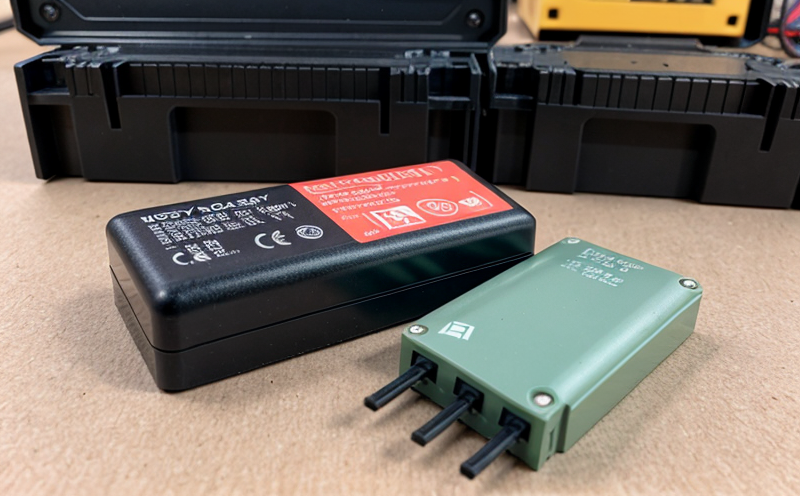BS EN 62133 Portable Battery Pack Performance Testing
The BS EN 62133 standard is a crucial document that sets out the requirements for portable battery packs used in various applications. This standard ensures that batteries meet stringent safety, performance, and durability criteria essential for consumer safety and environmental sustainability.
Our laboratory provides comprehensive testing services aligned with this standard to help manufacturers verify compliance and ensure product reliability. The testing process involves a series of rigorous checks designed to simulate real-world conditions under which the battery might operate. This includes thermal cycling tests, overcharge/overdischarge protection checks, short circuit protection assessments, and more.
One of the key aspects of our service is ensuring that every test conducted adheres strictly to the BS EN 62133 guidelines. We employ advanced instrumentation such as programmable temperature chambers, high-precision current meters, and data logging systems to capture accurate readings during each test cycle.
The results from these tests are critical for several stakeholders including quality managers who need assurance that their products meet regulatory requirements; compliance officers responsible for ensuring adherence to international standards; R&D engineers looking into new battery designs or improvements; and procurement teams aiming to source reliable components.
By partnering with us, you gain access not only to state-of-the-art facilities but also expert knowledge on how best to interpret the results of these tests. Our team will guide you through every step from initial consultation right up until final report generation ensuring that all necessary documentation is complete and accurate.
In summary, our BS EN 62133 Portable Battery Pack Performance Testing service plays an integral role in safeguarding both human health and the environment by promoting safe and efficient use of portable battery technology. It helps manufacturers produce safer products while also contributing positively towards global sustainability goals.
Why It Matters
The importance of compliance with BS EN 62133 cannot be overstated given the growing demand for portable electronic devices. These batteries power everything from smartphones and tablets to medical equipment and emergency lighting systems, making their safety paramount.
Non-compliance can lead to serious consequences ranging from product recalls to legal action. By ensuring that your products meet these stringent requirements, you protect yourself against potential liability issues while enhancing brand reputation and customer trust.
Beyond mere compliance, adhering to this standard also offers valuable insights into the performance characteristics of your batteries under different stress conditions. This information can be invaluable when developing future generations of safer, more efficient devices.
International Acceptance and Recognition
The BS EN 62133 standard enjoys widespread acceptance across Europe and many other parts of the world. Its international recognition stems from its rigorous approach to addressing safety concerns associated with portable battery packs.
Governments, regulatory bodies, and industry associations around the globe have adopted this standard as a benchmark for ensuring public safety when it comes to handling these devices. Manufacturers who comply with BS EN 62133 gain competitive advantages by demonstrating their commitment to quality and safety standards globally.
This recognition also extends beyond mere compliance; it serves as an endorsement of the rigorous testing procedures employed during production. Consumers can have confidence knowing that products bearing this certification have undergone thorough evaluations, reducing the risk of accidents or failures.
Environmental and Sustainability Contributions
The BS EN 62133 standard goes beyond just safety considerations; it also plays a significant role in promoting environmental sustainability. By mandating certain performance metrics related to battery efficiency, charging times, and recycling capabilities, this standard encourages manufacturers to adopt greener practices throughout their product lifecycle.
For instance, by specifying that batteries should maintain high levels of performance even after multiple charge-discharge cycles, the standard promotes longevity which reduces waste generation. Additionally, the focus on recyclability ensures that non-renewable resources are used efficiently without contributing to unnecessary environmental degradation.
The adoption of such sustainable practices not only benefits manufacturers but also contributes positively towards achieving broader societal goals related to climate change mitigation and resource conservation. As consumers increasingly prioritize eco-friendly products, compliance with this standard can serve as a powerful marketing tool that appeals to environmentally conscious buyers.





